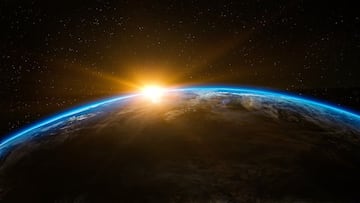When was the first Earth Day?
Every year on 22 April, millions around the world come together to celebrate our planet and renew our commitment to its well-being.


Earth Day, a day dedicated to environmental awareness and action, has become a global phenomenon. But where did it all begin?
The story takes us back to 1970, a time of growing environmental concern, and the vision of a passionate senator, Gaylord Nelson.
Senator Nelson, disturbed by the environmental degradation he witnessed, was inspired by the student activism of John McConnell against the Vietnam War. He envisioned a similar movement, but one focused on environmental issues. In 1969, after witnessing a massive oil spill off the coast of Santa Barbara, California, Nelson’s resolve solidified. He proposed a nationwide “environmental teach-in” on 22 April, 1970.
The creation of Earth Day
Joining forces with Denis Hayes, a young activist, Nelson set the wheels in motion. They aimed to create a day that would transcend political affiliations and social divides, uniting people under a common cause: protecting our planet. The concept resonated. College campuses became hubs of activity, with teach-ins, demonstrations, and environmental fairs planned. Environmental groups, previously focused on individual issues, saw the power of a unified front.
What started as an American event blossomed into a global movement. An estimated 20 million people across the United States participated in Earth Day activities. From coast to coast, rallies, parades, and educational events brought environmental concerns to the forefront of public consciousness. The media played a crucial role, broadcasting images of polluted landscapes and raising awareness about environmental threats.
Related stories
The impact of the first Earth Day was undeniable. It forced environmental issues onto the national agenda, perhaps playing a role in the creation of the Environmental Protection Agency (EPA) later that year. The Clean Air Act was amended, and the Clean Water Act was passed shortly after. Earth Day became a catalyst for a wave of environmental legislation.
But the first Earth Day’s significance goes beyond policy changes. It marked a shift in public perception. The environment was no longer a secondary concern; it was a pressing issue demanding collective action. Earth Day fostered a sense of environmental responsibility, though whether this will be enough remains to be seen. Nearly every nation on the planet is missing its key environmental targets with results that will lead to the devastation of Earth.